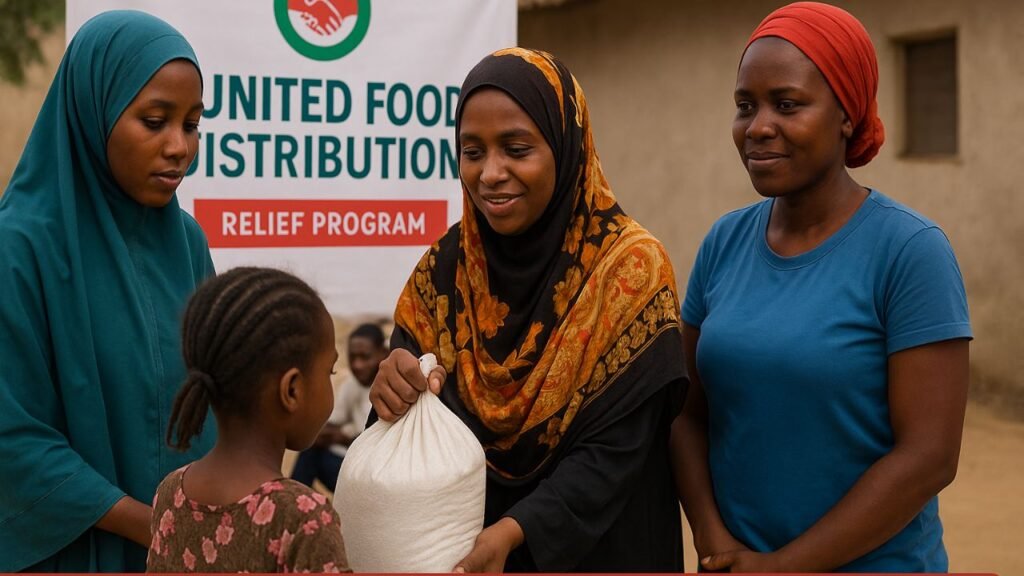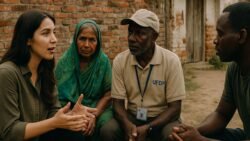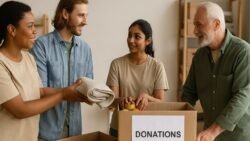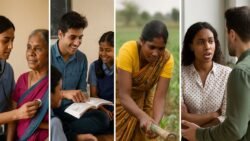Relief to Women Empowerment – From food distribution to women-led enterprises, the United Foundation for Development & Peace (UFDP) is making a tangible impact in communities across India. Rooted in the principles of grassroots development, UFDP empowers marginalized populations through integrated programs that address both urgent needs and long-term change. What sets UFDP apart is its commitment to addressing multiple challenges simultaneously — ensuring families don’t just survive, but thrive. From providing emergency food kits during crises to facilitating vocational training for women, every initiative is aligned with its vision of sustainable development. The ripple effect is profound: children stay in school, families experience better health, and communities evolve with dignity. The organization’s success lies in its community-centric approach, listening to local voices and designing solutions that matter. With a focus on real-time impact, UFDP continues to be a beacon of hope where poverty, gender inequality, and food insecurity intersect.

Food Security as the First Step to Empowerment
Food insecurity remains a pressing challenge in rural and urban-poor India. Through community kitchens, ration distribution, and nutrition awareness drives, UFDP tackles hunger at its root. Its programs prioritize households headed by single women, elderly, or persons with disabilities — ensuring the most vulnerable aren’t left behind. A 2023 report by the Global Hunger Index shows that India continues to face serious levels of hunger, and initiatives like UFDP’s food relief operations provide both immediate nourishment and dignity to families in need. But UFDP doesn’t stop there. They link food aid with pathways to income generation — encouraging recipients to join skill-building sessions and community groups. This ensures that relief doesn’t end with one meal, but leads to long-term food security through employment and livelihood development. Their use of digital monitoring helps track where food goes, enhancing accountability and real-time impact measurement.
Women-Led Change: The Power of Vocational Training
At the heart of UFDP’s model is the belief that empowering women changes everything. Their women-focused programs have enabled hundreds of women to break free from cycles of dependency and step into roles as earners, leaders, and decision-makers. Through tailoring units, candle-making workshops, digital literacy classes, and access to microloans, UFDP ensures that women aren’t just trained — they’re equipped to build businesses and futures. According to UN Women, economically empowered women are more likely to invest in their families and communities. UFDP’s model reflects this ripple effect — income earned by women leads to better schooling for children, improved health, and more cohesive communities. The organization also works with local stakeholders to challenge gender stereotypes and ensure that women’s empowerment is not only accepted but celebrated. These micro-changes are what accumulate into macro-level transformation.
Grassroots Impact in Real Time: Data-Driven Development
One of UFDP’s standout innovations is its use of real-time data to guide interventions. Volunteers and field workers use mobile tools to log distributions, gather feedback, and flag urgent needs — enabling rapid response and adaptive planning. This allows UFDP to refine its approach, allocate resources efficiently, and maintain transparency with stakeholders. As per findings by NITI Aayog, integrating data into development planning is key to achieving India’s Sustainable Development Goals. UFDP’s model reflects this shift toward evidence-based grassroots work, where real-time impact is not just tracked, but amplified. Moreover, donors and partners can access anonymized dashboards that show exactly how their contributions are making a difference — enhancing trust and long-term collaboration. The data-driven structure also helps UFDP advocate for policy changes and expand successful pilots to other regions.
Creating a Culture of Community Resilience and Hope
UFDP isn’t just distributing aid — it’s cultivating resilience. By forming Self-Help Groups (SHGs), linking beneficiaries to government schemes, and fostering youth participation in community projects, the organization builds a culture of mutual support. In times of economic stress, pandemic waves, or natural disasters, UFDP’s networks have enabled fast response — because the groundwork of trust and collaboration was already in place. This kind of social infrastructure is vital. As highlighted by Oxfam India, community-led development enhances recovery and long-term stability. UFDP’s peace-building workshops and awareness campaigns also address deeper social wounds — promoting gender equity, interfaith dialogue, and non-violence. These aren’t side programs — they are the core of UFDP’s mission to create not just change, but real change, in real time. In a world of fractured systems and rising inequality, UFDP’s grassroots model offers a blueprint for inclusive progress that others can learn from.







